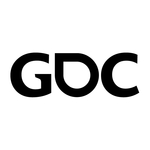Game Developers Conference’s 10th Annual State of the Industry Survey Shows Insights Into New Trends, Including Growing Focus to Combat Toxicity, Blockchain, Metaverse, and Unionization

Survey of Game Industry Professionals Also Shows Xbox and PlayStation Development Neck in Neck, Resilience of Studios in Pandemic; A Look Back at 10 Years Ago Versus Now
SAN FRANCISCO–(BUSINESS WIRE)–The Game Developers Conference (GDC) has released the results of the 10th annual State of the Industry Survey, revealing trends in the game industry ahead of GDC 2022, which will be held in-person and virtually at San Francisco’s Moscone Convention Center from March 21 – 25. The survey’s results reflect the responses of more than 2,700 game industry professionals, offers a look into the many issues that these professionals have on their minds and shows how the game industry is evolving and expanding. Some of the highlights from the results are below.
Almost 40% of Respondents Said Their Companies Have Reached Out in an Effort To Combat Toxicity in the Workplace Following Outcries at Activision Blizzard and Other Companies
The ongoing conversation about diversity and inclusion in the game industry came to a head this year when the California Department of Fair Employment and Housing filed a lawsuit against Activision Blizzard, citing, “numerous complaints about unlawful harassment, discrimination, and retaliation.” Since then, reports of systemic sexism, harassment, and other misconduct have surfaced about Activision Blizzard and other game companies. This built on already disturbing reports coming out of a 2018 investigative report on Riot Games, which just recently agreed to pay $100 million to settle its class-action gender discrimination lawsuit. (Note: This survey was taken before the WSJ’s investigative piece on Bobby Kotick, before Riot’s settlement was announced and before Microsoft announced it will acquire Activision Blizzard).
This has started a trend of companies reaching out to address misconduct and toxicity within the game industry. At the time the survey was conducted, 38% of respondents said that their companies reached out to them to start a conversation about how misconduct and toxicity are handled in the industry; 62% said their companies did nothing. This shows a growing number of workplaces have taken at least some initiative to root out toxicity, while also pointing out the industry has a way to go. When asked about how their company responded, some respondents said their companies held group discussions on misconduct or reminded employees how to report improper behavior.
Interest in cryptocurrencies and NFTs grows, but game developers remain skeptical
Two of the hottest, and polarizing, topics being debated in the game industry are cryptocurrency and non-fungible tokens (NFTs). While the majority of developers said that they and their studio are not interested in cryptocurrency (72%) as a payment tool or in NFTs (70%), for such a nascent space, 27% percent of developers are at least somewhat interested in cryptocurrency at their studio and 28% are at least somewhat interested in NFTs. The current implementation of both technologies is still very limited, with just 1% of respondents saying that their studio already uses either.
Metaverse popularity expanding, but most game developers are not developing for it yet
The promise of the metaverse is growing in the game industry. One of its most popular and lucrative components is user-generated content (UGC), which is why game professionals were asked if they were developing or planning to develop content or experiences for a UGC platform. The majority (83%) said that they are not involved at all, but 17% are already working on a project.
The breakdown of the UGC platforms for the 17% working on them were Roblox (5%), Minecraft (4%), Fortnite (3%), Dreams (3%), Core (2%), and “other” (6%). The provided platforms for the “other” responses included The Sandbox, VRChat, Unreal Engine, and “prefer not to answer due [to] confidentiality restrictions.”
When asked what companies/platforms are best placed to deliver on the promise of the metaverse, the most popular response was Epic/Fortnite at 17%, followed by Facebook (8%), Microsoft/Minecraft (8%), Roblox (6%), and Google (5%). The survey was conducted before Facebook’s Meta was announced, which may have impacted responses on the topic. About one-third (33%) of the respondents reported that they believe that the metaverse concept will never deliver on its promise.
Union hopes grow; almost one-fourth have already talked about unionizing
Fifty-five percent of respondents said that workers in the game industry should unionize, which is the highest amount yet in the 10 years of the State of the Industry Survey, but 18% believed that the industry will unionize. While only a minority may believe the industry will unionize, almost one-fourth of respondents (23%) said that conversations about unionizing have happened at their workplace.
The respondents also shared how those companies have responded to union talks with their workers. Thirty-six percent reported that their companies were supportive, compared to 8% that said their company opposed the unionization talks. More than one-fifth (21%) of respondents said their companies didn’t know that some of their employees were talking about unionizing.
PlayStation 5, Xbox Series X/S virtually neck and neck for current game development
When asked what all of the platforms are that they are currently developing games for, the results showed that 31% were working on a game for PlayStation 5, just edging out Xbox Series X/S (29%), showing that both platforms are roughly equally popular for developers. On the mobile front, 30% of developers are working on a game for iOS and 30% for Android. 20% of respondents are working on a game for the Nintendo Switch (a slight increase from 2021), but PC is once again clearly the most popular platform for development with 63% of developers reporting to be currently working on a PC game.
Studios stave off closures amid the pandemic
The game industry has stayed resilient despite the ongoing pandemic. Fifty percent of respondents said their company expanded their number of staff during the past year. Thirteen percent of respondents said their company contracted during the past year, compared to 33% that stayed the same. Only 2% of respondents said that their studio closed entirely. These figures are similar to the previous year, signifying that the pandemic and shift to remote work did not have a lasting impact on the workforce.
Additional notable items from the results of the survey include:
In Epic Games v. Apple, more devs side with Epic
When asked who they felt was “in the right” in the case of Epic Games v. Apple, over one-third of respondents (34%) sided with Epic Games, making it the most-popular response—while the least popular was Apple (8%). Nearly a quarter (23%) said neither side was right, 10% said both made good points, and one-fourth (25%) said they weren’t sure.
The Steam Deck is met with both excitement and uncertainty
Developers were asked whether they felt the Steam Deck would be a viable game platform in the long run. The results found developers more positive than negative, but uncertain: 36% said yes, 17% said no, and 47% were unsure.
10th Annual Survey Provides a Look Back at 10 Years Ago Versus Now
The 10th iteration of the GDC State of the Industry Survey looks back at what developers were doing and their opinions compared to developers today, showing some interesting results:
-
PC is the house favorite
- PC has consistently been the most developed platform, rising from 48% of developers working on a game for PC in 2013, to 63% in 2022.
-
Mobile took the plunge
- Back in 2013, mobile was the hot trend in games with 55% of developers making games for phones and other mobile devices. In 2022, it’s down by almost half to 30%.
-
PlayStation beats Xbox
- The platform war between PlayStation and Xbox has gone strong over the past 10 years, but the clear winner has been PlayStation. The second year of the survey, 2014 had more developers working on Xbox One than PlayStation 4. Every year after that, more developers reported working on a PlayStation game than are working on an Xbox game.
-
Has VR hit its peak?
- In 2015 only 7% of developers were working on a VR game; this increased to 24% by 2017. However, the trend has reversed and in 2022, just 10% of developers reported working on a VR game.
-
The Nintendo surge
- In 2013 the number of developers working on games for 3DS and WiiU was in the low single digits. The success of the Nintendo Switch has seen that number grow to 20%
The full survey, which includes more insight into the game development community’s thoughts on these topics and a multitude of other facts and details, can be downloaded for free here.
For more details on the Game Developers Conference, please visit the GDC’s official website, or subscribe to regular updates via Facebook, Twitter, or RSS.
About GDC
The Game Developers Conference® (GDC) is the world’s largest professional game industry event with market-defining content for programmers, artists, producers, game designers, audio professionals, business decision makers, and others involved in the development of interactive games and immersive experiences. GDC brings together the global game development community year-round through events and digital media, including the GDC Masterclass, GDC Vault, gamedeveloper.com, Game Career Guide, Independent Games Festival and Summit, and the Game Developers Choice Awards.
GDC is organized by Informa PLC, a leading B2B information services group and the largest B2B Events organizer in the world. To learn more and for the latest news and information visit www.informa.com.
Contacts
fortyseven communications
Logan Lampton
gdcpress@fortyseven.com


